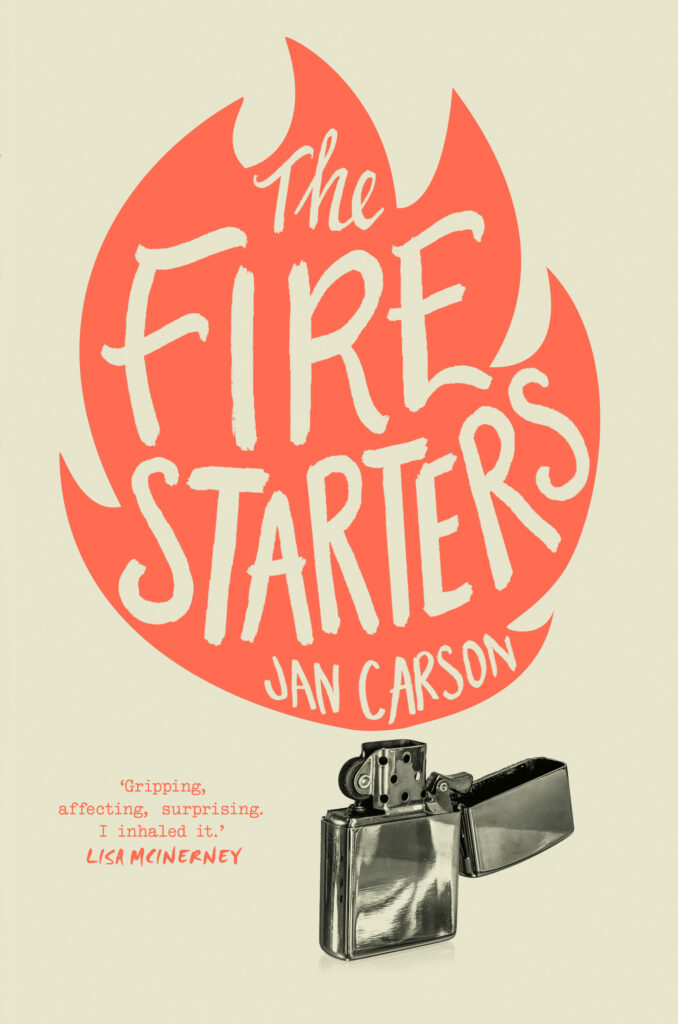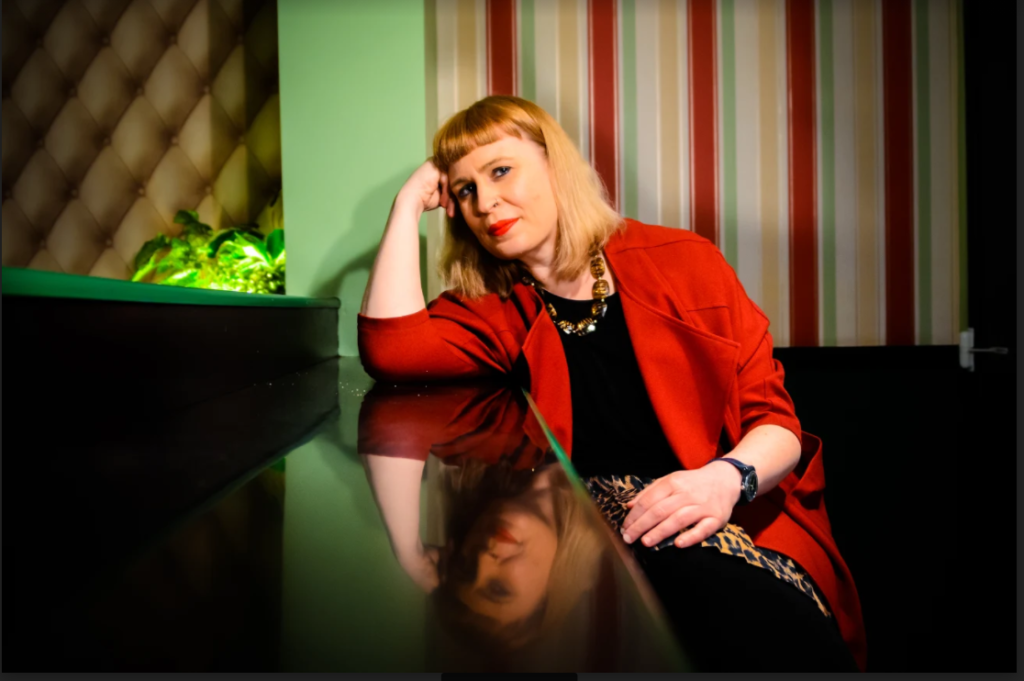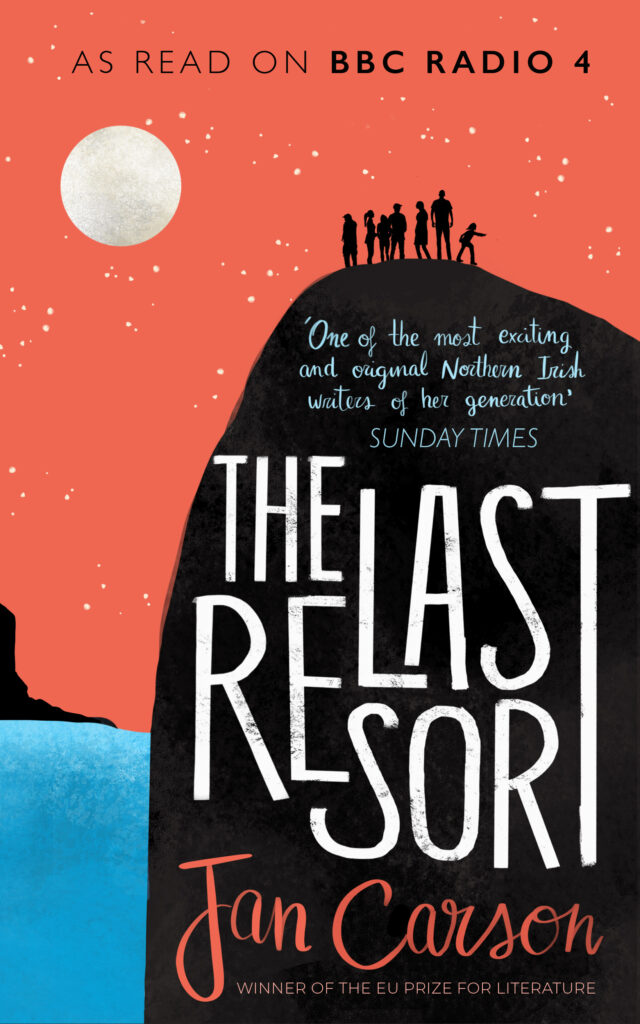Writer and community arts facilitator Jan Carson spoke to Northern Slant about everything from the recent spate of violence on the streets of Northern Ireland to writing and publishing during the pandemic. In this first of two articles, Jenny McCullough talks to Jan about art and artists in the community, the representation of culture and identity in writing, and advocating for art from Northern Ireland.
When I asked Jan Carson to talk to me for Northern Slant, the conversation was to be about writing the next century in Northern Ireland. After successive nights of street violence, I don’t know if she wants to talk about “what’s been happening”. I don’t know if I do. It has been on Jan’s mind as much as – maybe even more than – it has been on everyone else’s and, as she points out, writers from Northern Ireland are often called on to explain and interpret what happens here for audiences everywhere. We talk about the role of artists and art in the community, the effects of the pandemic, arts policy and the profile of art from Northern Ireland.
An answer to violence: writing as a platform
“One thing about being a writer from Northern Ireland is that there’s this assumption that you will be able to talk politics and the issues as well as what’s in your book and the story,” Jan says. “So it has led to this incredible range of writers who are very, very articulate when it comes to talking about their work and what it means within a social context. A lot of these folks are really passionate about Northern Ireland and they want to use their books as a platform.” Recent disturbances on NI’s streets raise questions about the role of writers as they try to translate that passion into a response.
“You feel a bit useless as a writer. Like, the time for me going out and being like ‘Hey lads, will we do a wee community writing workshop?’ is not right now. We are all trying to think, well, what can we do? Where is the space for writers to have an impact on what’s going on?”
Jan is a community arts facilitator of more than 20 years’ experience, and her extraordinary novel The Firestarters, which won the EU Prize for Literature Ireland in 2019, directly engages with violence among predominantly Protestant communities in east Belfast. I ask whether she feels under pressure to address recent events. Not pressure, she replies, but responsibility.
It was, she says, “a real honour to be chosen by an Irish panel to have a book about unionism represent Ireland; it has raised so many interesting conversations, not just in Ireland.” A lot of these conversations in Ireland, the UK and beyond have been about Orange culture, sparked by questions arising not from bias, Jan tells me, but from “plain ignorance”. International conversations are clarifying, says Jan, because they frame “things that we might tiptoe around, and that can be really refreshing.”

There is a drive to keep writing about people who have previously been caricatured or ignored. Jan says, “I want to write a lot more about Protestant culture, not just loyalism but the evangelical Protestant community … the fractures in loyalism, and also the inner hurts and where they are coming from.” Writers who take on the recent violence should be asking themselves questions that don’t take the traditional route of pastiche or cliché, she says:
“There are genuine hurts and there are genuine fears and there are genuine losses as well, when you look at the landscape of east Belfast and the loss of jobs and the loss of opportunities and the loss of services for young people … we need as artists to not do just a light touch – ‘let’s just make fun of these people because that’s easy’. You need to go deep underneath as well. Some of that stuff is going to offend people and it’s going to make them angry.”
She identifies a greater diversity and complexity in Northern Ireland than existed 20 years ago. When I ask her about “the centenary”, which for writers has superseded “the border” as a source of commissions, she says that with more people from more places having made Northern Ireland their home in that time, “we have to be aware that it’s not just our conversation any more. It’s not just a conversation around the traditional sectarian divide.”
Jan’s engagement with Northern Ireland has become more complex over time and, she says, although nobody should be compelled to write or create about anything, for her there is no getting away from it. After years of setting her work in “a kind of nothing place”, a move home from the US saw Jan rediscover and delight in Northern Ireland’s peculiarities, which she reflected in optimistic stories almost like love letters. Now, she says, she can “put Northern Ireland in context and critique what needs to be critiqued.”
“I always want to try and be a critical friend. You know, you start from a place of ‘this is home and I love it’, and it breaks my heart what’s going on at the minute, but that doesn’t allow me to shy away … We need to go deep into the issues and that involves having hard conversations.”

Jan has spent more than 20 years as a community arts facilitator
The role of community arts in Northern Ireland: power and policy
Jan is in no doubt about the potential impact of engagement with the arts on divisions in society. At this year’s Imagine! Festival, her talk on The Right to Bear Arts was a manifesto for the transformation of policy and attitudes needed to realise that potential. What arts engagement does to the mind, she says, is to teach objectivity. That “allows you to put your own situation in context. That’s a really liberating thing for people”. In turn there’s a positive effect on the whole community. “A society that can process things cerebrally rather than by throwing petrol bombs at each other is a much more healthy society.”
Arts engagement fosters community, Jan says. Writing and other projects act as a “deflecting technique that allows you to find your unity before you start to talk about your division.” Then, she says, “it’s easier to talk about the division.” After 20 years of this work, it’s glaringly obvious to her. But while some politicians do see it, others don’t or won’t. This makes her wonder whether there’s a “more sinister agenda” militating against the encouragement of “liberated minds that are able to think for themselves.”
What does the NI Executive need to do to convince her otherwise? Is it about money? It is, Jan says, but it’s also about how money is used.
“We’ve never had a proper strategy of community arts engagement or even community engagement. What I have seen in the rounds of peace funding that came through has been very short-term thinking … you should never be in a situation where arts facilitators are spending the majority of their time filling in application forms to get enough funding to continue their existence.”
Jan compares the dynamic between artists and government with a parent–child relationship that cannot live on finance alone.
“The money’s great, but I want you to care about what we do and invest in it … not just turn up with a bloody giant paintbrush or something for a photo op at the end of the project.”

The pandemic: levelling for some but leaving others behind
Jan says that the pandemic has pushed some artists, “who were already at the end of their tether”, to speak up about the need for better planning and policy for the arts. But in some ways, “this” — we both gesticulate at the screens we are talking into — has been levelling. Community arts in Northern Ireland are often still segregated and, says Jan, event locations are key: “if you do one session in the Falls, the next week you have to go over to the Shankill and balance it out.” The online space created as a result of coronavirus has “brought a lot of people into the same room because it is neutral”. Jan has been working with Féile for the first time, which has been “just wonderful”. It has felt “like not as huge a step for me to talk about unionism at Féile online than it would, maybe, to go up to the Rock and do it.”
The online space is far from inclusive in other ways, however. A specialist in older people’s community arts, Jan says that while some have been able to make the transition in the pandemic, for others it has been impossible, “and it’s been impossible for us to hold on to them.” We need to think really hard about that, she says, “it’s going to be a different world that we come into.”
She might say that it is a role she has fallen into, but Jan is a campaigning advocate for the “Prophets, Makers and Risk Takers” from Northern Ireland who write about the place on their own terms. As we talk, it seems to me that as well as serious purpose, there is some rebellious fun to be had in confounding expectations and subverting the intentions of those in whose interests it is for the arts to be divided along crude sectarian lines. Jan says, “I wonder if the powers that be realise that we’ve all been talking behind their backs.”
